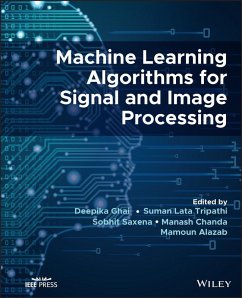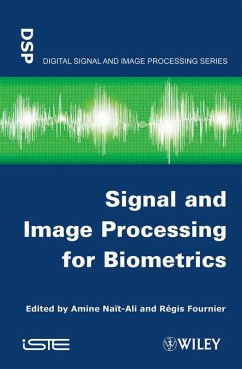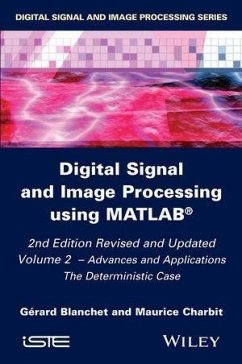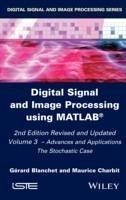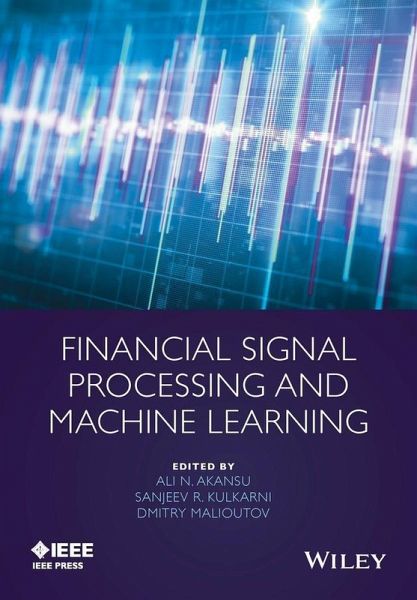
Financial Signal Processing and Machine Learning (eBook, PDF)
Versandkostenfrei!
Sofort per Download lieferbar
89,99 €
inkl. MwSt.
Weitere Ausgaben:

PAYBACK Punkte
0 °P sammeln!
The modern financial industry has been required to deal with large and diverse portfolios in a variety of asset classes often with limited market data available. Financial Signal Processing and Machine Learning unifies a number of recent advances made in signal processing and machine learning for the design and management of investment portfolios and financial engineering. This book bridges the gap between these disciplines, offering the latest information on key topics including characterizing statistical dependence and correlation in high dimensions, constructing effective and robust risk me...
The modern financial industry has been required to deal with large and diverse portfolios in a variety of asset classes often with limited market data available. Financial Signal Processing and Machine Learning unifies a number of recent advances made in signal processing and machine learning for the design and management of investment portfolios and financial engineering. This book bridges the gap between these disciplines, offering the latest information on key topics including characterizing statistical dependence and correlation in high dimensions, constructing effective and robust risk measures, and their use in portfolio optimization and rebalancing. The book focuses on signal processing approaches to model return, momentum, and mean reversion, addressing theoretical and implementation aspects. It highlights the connections between portfolio theory, sparse learning and compressed sensing, sparse eigen-portfolios, robust optimization, non-Gaussian data-driven risk measures, graphical models, causal analysis through temporal-causal modeling, and large-scale copula-based approaches. Key features: * Highlights signal processing and machine learning as key approaches to quantitative finance. * Offers advanced mathematical tools for high-dimensional portfolio construction, monitoring, and post-trade analysis problems. * Presents portfolio theory, sparse learning and compressed sensing, sparsity methods for investment portfolios. including eigen-portfolios, model return, momentum, mean reversion and non-Gaussian data-driven risk measures with real-world applications of these techniques. * Includes contributions from leading researchers and practitioners in both the signal and information processing communities, and the quantitative finance community.
Dieser Download kann aus rechtlichen Gründen nur mit Rechnungsadresse in D ausgeliefert werden.





